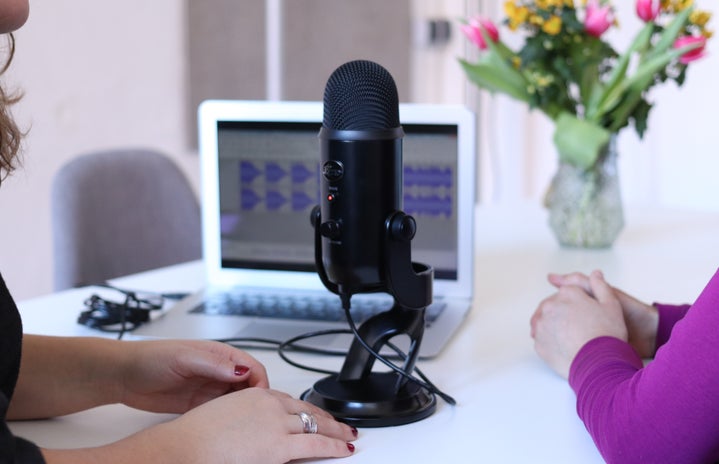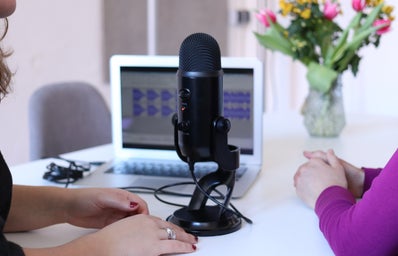Decades ago, no one would have guessed there would ever be technology as advanced as the radio. Now, with their own cellphones, people from around the world can choose what they would like to listen to, wherever and whenever they want. But how did that happen? If we are talking about the origins of what we now call podcasts, we can say it all started in the 2000s. The beginning of the decade was important in developing new technologies, such as USB flash drives (2000), the iPod (2001) and, what most impacted the appearance of podcasts, a new version of the RSS technology, RSS 0.92.
- TechStuff
-
But what is the RSS technology? Well, to sum it up, RSS stands for Really Simple Syndication, which means it is a data format used to automatically keep track of various websites. With the new update, audio files could now be transferred from RSS feeds to iPods, allowing radio broadcasts files to be stored on portable players and listened to anywhere.
Once the new technology was ready to go, a new way was created to automatically move and download the audio files so users were finally able to see everything in one single feed. David Winer, the man behind RSS and Adam Curry, former MTV VJ, devised a plan that enable them to download online radio broadcasts directly into Apple’s iPods, revolutionizing technology forever.
- Start With This
-
The term “podcasting” first appeared in an article written by journalist Ben Hammersley for The Guardian in 2004. After that, the name caught on and so did the practice of listening to podcasts, especially after the emerging of Libsyn.com (Liberated Syndication), the first podcast service provider.
In 2005, “podcast” was named the Word of the Year by the New Oxford American Dictionary. The same year was extremely important for the ascending of that new industry, considering that is when Todd Cochrane created the first guide to producing podcasts, which he named Podcasting: Do-It-Yourself Guide.
That same year was when Yahoo launched its own podcast search site and Apple decided to add podcasting to iTunes, where listeners could subscribe to, download, and organize their podcasts. A month after Apple’s update, the White House´s website started releasing U.S. President George W. Bush’s weekly address via podcast.
- Growing with the Flow
-
From then on, things escalated quite quickly. In 2006, Steve Jobs released a tutorial for creating podcasts on Garage Band, a free software by Apple. A month later, the first podcasting live tour was made by Lance Anderson, The Lance Anderson Podcast Experiment. That genius new idea ended up being implemented into the podcast world and touring with podcasts became a common practice.
With time, new podcasts emerged talking about all kinds of topics. In 2007, comedian Ricky Gervais won a Guinness World Record for having the most downloaded podcast at the time, with over 250,000 downloads per episode. Ten years later, The New York Times debuted their news podcast, which now holds the title, hitting, in 2020, an average of 4 million downloads per episode.
As of May 2021, there are over 2,000,000 podcasts recorded around the world in more than 100 languages, talking about all kinds of topics. Comedy and daily news were followed by politics, economics, language lessons and, since 2014, one of the most researched topics to listen to: true crime.
- Crime Junkie
-
After This American Life launched Serial, the first podcast focused on that subject, in 2014, true crime has become a fan-favorite. Nowadays, it is nearly impossible to discuss podcasting without opening some space to talk about what seems to be an obsession with uncovering criminal cases.
Every week, iHeartRadio updates the Top 100 Podcasts, and the last update showed that two out of the top three most listened podcasts are about true crime. While some of them are more lighthearted, others dig deep into the minds of all kinds of known and unknown criminals.
How can someone enjoy listening about murder and serial killers? Well, some may find it disturbing, but millions of people are truly absorbed by the storytelling or simply find it interesting to learn what you should and should not do when feeling threatened by someone who might be dangerous. At the same time, there are those who feel comfort in knowing they are not the ones in the situations they hear about and like to think they would be smart enough to escape those scenarios.
- Now, What’s Next?
-
At a time when basically anyone can have their own podcast, the subjects are endless. Since 2019, Spotify has become one of the biggest platforms in that field, offering not only the classics available elsewhere, but also exclusive content, some of which is free, some available through paid subscriptions. As of May 2021, Spotify has just announced their newest feature: sharing specific timestamps of podcasts with other users.
At the end of the day, regardless of one’s preferences, there is a show for everyone. Going on car rides, doing the dishes, having a drink, or simply falling asleep can become way more entertaining if you have a podcast on, just give it a try. And if any suggestions are needed, why not check the titles for the topics on this article?
—————————————————————
The article above was edited by Anna Bastos.
Liked this type of content? Check out Her Campus at Cásper Líbero for more!


